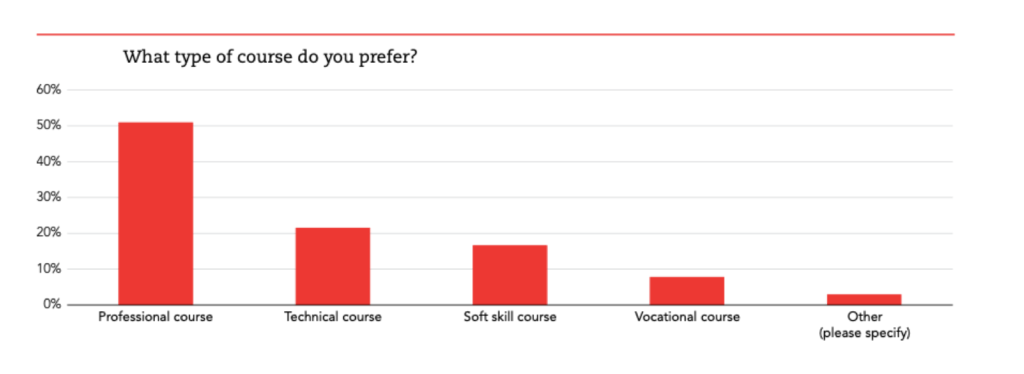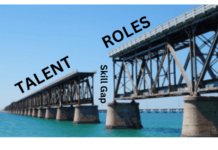With digital learning becoming the new norm, the scope for learning and development has changed completely including for the finance professionals. Around 50 percent of HR professionals today prefer online mode of learning as compared to the classroom method for finance workers. A majority of 60 per cent of the total believe blended form of learning would be a better option while at the same time a small number of 20 per cent still hang on to face-to-face as the best bet.
According to a survey conducted by the Association of Chartered Certified Accountants (ACCA), titled ‘Learning and Development: Outlook in the Covid-19 Year’, the learning space is witnessing a lot of emerging trends in today’s changing world order. The study was conducted in India in April, and consists of responses from over 102 HR professionals across different industry types on how the L&D landscape has changed and what it means for the finance employees.
More than 70 per cent of the respondents were from organisations that had at least 500 employees or more, while 23 per cent represented smaller organisations with less than 250 employees.
At the outset, an overwhelming 80 per cent of the whole believe that covid-19 has changed the way the finance teams will function in the future. This of course, generates a renewed look at learning opportunities and methods for the finance guys. These HR professionals agree. Around 60 per cent of them feel that there will be a likely increase in the focus on L&D for the finance teams.
However, when asked whether it would impact the L&D budget in the future, close to forty per cent say that it might remain the same with little more than 20 per cent saying it will increase. On the other hand, a little more than 40 per cent believe learning budgets will get lower in the coming years. With the shift to digital, not having to book expensive retreats for one’s employees for learning activities will likely bring down costs by a significant margin.
Despite the differences in opinions, 95 per cent of them agree that they are more likely to learn something in the coming year.
 On the question of preferred methods of learning, according to the report, around 69 per cent of respondents preferred short-term courses of less than three months’ duration, while around 33 per cent were interested in a course with a duration between three to six months.
On the question of preferred methods of learning, according to the report, around 69 per cent of respondents preferred short-term courses of less than three months’ duration, while around 33 per cent were interested in a course with a duration between three to six months.
HR leaders will agree that soft skills have become quite critical for today’s work environment ;and that they themselves would mostly prefer candidates who possess soft skills in addition to functional capabilities. However, the choice of these professionals reveals a different trend with only 16 per cent saying soft skills training will be a focus.
 More than half the respondents admit that they would prefer a professional course instead, while only 21 per cent were interested in a technical course.
More than half the respondents admit that they would prefer a professional course instead, while only 21 per cent were interested in a technical course.
Md. Sajid Khan, head of International Development, ACCA says, “As highlighted in the report, this willingness to learn is commendable, and more people are keen to enhance their skills and build new competencies in the coming year.”
Value our content... contribute towards our growth. Even a small contribution a month would be of great help for us.
Since eight years, we have been serving the industry through daily news and stories. Our content is free for all and we plan to keep it that way.
Support HRKatha. Pay Here (All it takes is a minute)




































